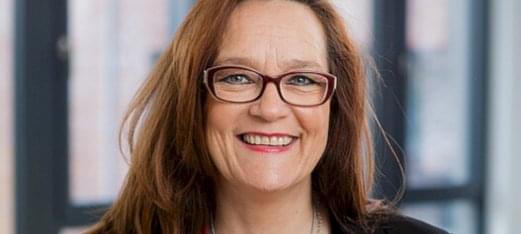nextMedia.Hamburg
In partnership with the Ministry of Culture and Media of the Free and Hanseatic City of Hamburg, Hamburg Kreativ Gesellschaft mbH as well as committed businesses and individuals, Hamburg@work is supporting the location initiative nextMedia.Hamburg.
Journalists, games developers, creatives from the advertising industry and musicians are creating a diverse content culture. Content producers are increasingly disseminating their content digitally. All made possible by innovative technologies, forms of use and applications.
The initiative nextMedia.Hamburg aims to drive these innovations and promote networking for the local media and digital industry. The initiative especially helps businesses and creatives with the development of new business models to safeguard and build on Hamburg’s leading position as a media center. To that end, nextMedia.Hamburg has identified service and support, publishing and networking as the three key areas of activity for maximizing the strengths of the metropolitan area and capitalizing on it as a location.
nextMedia.Hamburg was spun off from the initiative Hamburg@work in 2013 as a venture refocusing on content & technology. Sharing the name of the registered association Hamburg@work e.V., until 2013 the initiative Hamburg@work served as the media, IT and telecommunications initiative of the Free and Hanseatic City of Hamburg and of Hamburg businesses that had come together under the umbrella of the association Hamburg@work. The initiative nextMedia.Hamburg builds successfully on the work of the initiative Hamburg@work.
Click here to visit the website of nextMedia.Hamburg
SMART CITIES - URBAN TESTBEDS
The Traveling Conference "Smart Cities Urban Testbeds" to Australia and New Zealand, scheduled for the first week of February 2019, will deepen existing contacts and expand the exploration of potential collaborations at the interface of research, city labs and business clusters, in the context of sustainable urban planning developments with the focus on smart cities.
At the heart of the exchange are experiences with urban testbeds and visualisations and simulations of urban data and scientific findings from dynamic space and neighborhood observations, for the purpose of involving multiple stakeholders (including residents, organizations, businesses, citizens) in understanding and development processes, in the context of neighborhoodbased Smart Cities projects.
The consideration of the smaller urban units places, quarters and cluster zones, in particular as urban testbeds, are particularly suitable for making insights, methods and service scenarios comprehensible and relevant in terms of their transferability, thus enabling sustainable cooperation.
The collection, visualization and simulation of urban data and their link with scientific knowledge is a new and very interdisciplinary field in urban research (City Science). Key here is the consideration and integration of multiple stakeholders, both in the capturing of urban units, as well as in the transfer of knowledge for decisionmaking.
In Australia and New Zealand, this applied research and development approach was met with great interest, while at the same time relevant applications from its own smart city developments in Melbourne, Auckland and Sydney have been revealed, as ideal condition for concrete and sustainable potential cooperations. The initial contacts were established and intensified in the cause of the EU Regio World Cities programme between the EU and Australia, matching Hamburg with Melbourne. Prospective activities in the field of Smart Cities, Urban Testbeds, including Smart Culture and Urban Data, were extended to Sydney and Auckland.
The expert group will consist of a group of six, including the eCultureLab cofounder (longtime Smart City expertise), the CEO of the Hamburg cluster for digital economy (he was also the Managing Director for the Hamburg Development Corporation for many years), one of our CityScope specialists, one of our City Science researchers and an Urban Designer, also engaged in our SmartSquare project for the archaeological museum.
The HafenCity University Hamburg University of the Built Environment and Metropolitan Development (HCU Hamburg) is solely focused on metropolitan development. Hamburg as a living laboratory for digital urbanization is the object of cooperation between the HafenCity University Hamburg (HCU) and the Changing Places Group of the Media Lab at the Massachusetts Institute of Technology (MIT). The CityScienceLab at HCU (CSL@HCU) is a research unit exploring processes of urbanization in the digital age. Smart Cities urban testbeds and cultural perspectives are at the core of the eCultureLab@HCU, running the nationally funded multiple stakeholder SmartSquare project.
Smart Square
Can the history of Hamburg’s Domplatz be brought to life using new technologies? And can the square’s appeal be enhanced with cultural storytelling and innovative service offerings?
These issues have inspired HafenCity University Hamburg, in cooperation with Hamburg@work, the Archaeological Museum of Hamburg and eCulture.info, to investigate the potential for revitalizing what is surely the most historic site in the Hanseatic City of Hamburg.
Hamburg’s Domplatz – or Cathedral Square – was the site of the Hammaburg fort in around 800 AD and for centuries was the intellectual and cultural hub of our city. But embedded as it is within a busy business district between Speicherstadt and Mönckebergstrasse, the square now mainly functions as a transit zone.
The Smart Square joint project financed by the Federal Ministry of Education and Research (BMBF) as part of the “Innovations for the Future of Production, Services and Work” is seeking ways of breathing life back into the square. A data-focused review and analysis provide the basis for modeling various usage scenarios. Measures for the development, prototypical implementation and evaluation of service offerings are being examined in terms of their transferability to comparable locations.
One main focus of the project is on interlinking different research approaches: The review of the square using qualitative methods and its visualization and analysis based on interactive city models, or CityScopes, are fed with digital data to obtain as comprehensive a picture as possible.
The process also includes investigating what form needs-based business models tailored to the district’s local conditions and smart services might take, and whether they can substantively help revive spaces. In this way, interactions between and potential for culture, tourism, mobility and trade in the revitalization of small-scale districts are investigated using Domplatz as a prototype. Its cultural uses are of special significance.
The CityScienceLab team from HafenCity University has now been actively digitalizing the City of Hamburg for almost two years. The expertise of the Archaeological Museum of Hamburg, Hamburg@work and eCulture.info supplements the interdisciplinary perspective of the researchers engaged in the project from CityScienceLab and HCU Hamburg’s eCultureLab for the “SmartSquare” project.
 Agile HR Club
Agile HR Club
Treating employees as “production resources” and reducing them to the “usefulness” of the “human resource” for the business is a fatal error in shaping modern worlds of work. The “employee dimension” is increasingly emerging as the decisive competitive factor in the new digital world. In this day and age, a reactive HR department is not the right way to find employees; the task calls for agile HR marketing, HR recruiting and employer branding.
Hamburg@work brackets together all activities involving modern, agile human resources work under the term Agile HR Club. The target group is all those managers and employees at our member businesses with personnel responsibilities who want to shed the conventional perspective so as not to become victims of digital automation themselves.
Under the motto “Surviving the War for Talents”, the Agile HR Club addresses working life and how to matchmake people with tasks that are diverse and varied, and call for spontaneous and complex problem-solving as well as genuine creativity and in-depth human contacts. Because however great the inroads of digital automation, only these tasks will remain under the control of people in the long term.
IT Executive Club
The Hamburg IT Strategy Days has long enjoyed the cachet of the nation’s foremost congress and for over 15 years has led the way as Germany’s favorite conference for top IT decision-makers. It is organized by Hamburg@work and Faktor3 Live in cooperation with IDG Computerwoche.
Hamburg@work also taps the event’s immense potential outside the context of the IT Strategy Days through the IT Executive Club, an association arm of Hamburg@work. In conjunction with the IT users located in the metropolitan region, Hamburg@work has created a regional platform through the IT Executive Club that additionally enhances and promotes dialogue and networking among IT managers.
Club events regularly attract around 100 Hamburg IT executives, Chief Information Officers (CIO) and technology chiefs of leading businesses and institutions. The latter include DAX and MDAX-listed corporations as well as SMEs from all industries, public bodies, start-ups and Hamburg universities.
Current strategies, requirements and management approaches to implementing more efficient IT structures are among the topics for discussion. As well as a New Year Reception, a Members Lounge at the Hamburg IT Strategy Days, the “ITEC@” formats and regular club evenings, learning journeys have been on offer since 2016. The ITEC Care Awards were a new addition in 2018.
Admission to the club is exclusively by personal invitation. Membership of the IT Executive Club is reserved for individuals who decide on the information processing and information technology strategy at their companies and are responsible for operationalizing it. Professors of (business) information technology or leading figures whose subject areas of work closely with those of the club may also be admitted as members. Admission is decided upon by the Executive Board and Advisory Council of the IT Executive Club
 Women’s Club
Women’s Club
Female diversity is an important topic for Hamburg@work: The HWWC | Hamburg@work’s Women’s Club was founded in 2016 on the initiative of Petra Carlsen and other female managers from the Hamburg@work network.
It is regrettable that women are frequently not as active at professional networking or may pass up many opportunities even though they are “born networkers”. It is a recurring phenomenon that women will meet other women who may be very well connected in their private lives, but not professionally. Through the Women’s Club, Hamburg@work aims to motivate women to network more, including in professional life.
Under the “Female Leadership” banner, the Women’s Club offers female professionals a platform they can use for networking and dialogue, as well as expanding and sharing their specialist knowledge and . The regular business breakfasts and businesswomen’s lunches regularly attract up to 50 participants.
In February 2018, the Women’s Club successfully staged the first cross-cluster conference on the subject of “Digital Leadership” together with “Aviation WoMen” from the association Hamburg Aviation e.V., with the event attended by some 200 women.
proDuale
ProDuale is a project of Sophia.T gGmbH and supported by the Hamburg Ministry of Economic Affairs, Transport and Innovation along with Hamburg@work. The project furthers both the activities of the Women’s Club of Hamburg@work, and those of the Agile HR Club .
The message and proposal for member businesses are the following: As a small business, have you always wanted to offer a dual course of study in engineering? But have been put off by thinking you don’t have the necessary human and structural resources to meet the demands of a university and train up students into successful employees?
As an entrepreneur, do you not really have the time to meet the demands of a university and train up students into successful employees? Then proDuale and Hamburg@work have the solution for you.
- Minimal recruiting outlay: proDuale supports you during the recruitment process and helps you find the ideal dual system student for your business.
- Partnership-based, unbureaucratic support from the proDuale business group and Hamburg@work’s network, for more diversity and depth in training – for example through internships within the network.
- Direct cooperation with HAW Hamburg via proDuale instead of laboriously seeking out a partner university.
- Better prospects of academic success and greater motivation in everyday business operations: The 32-week proDuale program prepares your dual system student optimally for the challenges of their studies and the specific tasks they will be face at your business by providing hard facts, soft skills and individual coaching in a practical phase ahead of their studies.
- Attractive employer branding for your business in the university world.
- Targeted advancement of women: top female talents for your company.
Curious to find out more? Then just get in touch with us.
StartUp Club
Hamburg@work supports start-up businesses in the initial phases of their life-cycle. With our network’s over 20 years of experience, we draw on the many-faceted experience available within the Hamburg@work business network.
The goal is to link up ambitious start-ups and established businesses so that they can learn from each other. The fledgling businesses draw on the experience of the established ones, and the established ones on the methods, pace and agility of the start-ups.
Concepts such as performance, requirements, top-down, templates and optimization are brought together with notions such as discovery, opportunity, bottom-up, agile and biz innovation.
The StartUpClub of Hamburg@work isn’t a club you have to enroll in, it is the name of a program under which Hamburg@work brackets together the events and activities that are aimed at young businesses in the seed, start-up, emerging growth or expansion phase.
Startup Guide Hamburg
Packed with inspiration, guidance, local start-ups and hints for establishing a business, the popular Startup Guides map out opportunities and stories for those who are interested in setting up a business.The Startup Guide Hamburg was first published in spring 2018.Hamburg@work is involved as location partner.
Hamburg@work supports the StartUpGuide Hamburg as the digital cluster in Hamburg and the network for a new world.Entrepreneurs find ideal access to established businesses in the digital world via Hamburg@work.Other partners of the Startup Guide are KPMG, Airbus and betahaus Hamburg.
The Startup Guide’s vision is to inspire entrepreneurs and equip them to become more successful by publishing detailed guides on prominent start-up cities worldwide. In the past three years, Startup Guide has brought out books on cities such as Berlin, Lisbon, London, Vienna, Munich and Zurich, and sold around 40,000 books worldwide. Startup Guide was established by the Dane Sissel Hansen in 2014 and is a creative content and self-publishing company.
Click here to visit the website of StartUpGuide Hamburg



















